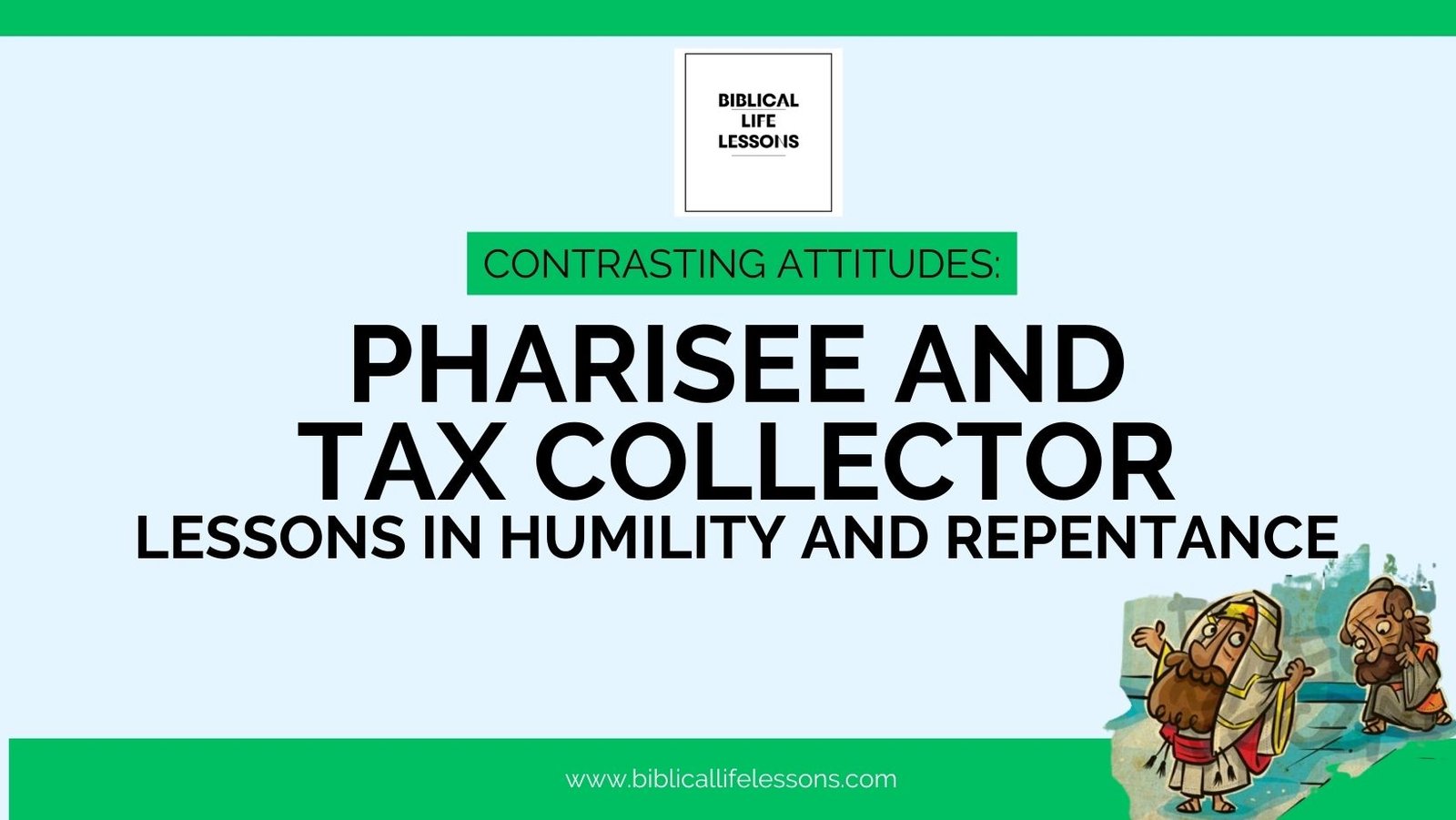Introduction
The parable of the Pharisee and the Tax Collector, shared by Jesus in the Gospel of Luke, presents contrasting attitudes towards righteousness, humility, and repentance. This article delves into the profound lessons gleaned from the attitudes of these two characters, emphasizing the transformative power of humility and repentance in the life of a believer.
Understanding the Parable
In the parable, Jesus contrasts the prayers of a Pharisee, known for his religious piety, and a tax collector, often despised for his collaboration with the oppressive Roman authorities. The Pharisee boasts of his righteousness before God, while the tax collector humbly acknowledges his sinfulness and pleads for mercy.
The Pharisee’s Self-Righteousness
The Pharisee exemplifies self-righteousness, boasting of his adherence to religious practices and looking down upon others with contempt. His prayer is marked by arrogance and pride, as he compares himself favorably to the tax collector and highlights his own perceived moral superiority.
The Tax Collector’s Humility
In stark contrast, the tax collector approaches God with humility and contrition. He recognizes his unworthiness and sins, unable to even lift his eyes towards heaven. His prayer is simple yet profound, a heartfelt plea for mercy and forgiveness.
Lessons in Humility and Repentance
The parable offers profound lessons in humility and repentance. It challenges us to examine the posture of our hearts before God and others. Humility involves recognizing our dependence on God’s grace and acknowledging our own limitations and shortcomings. Repentance entails turning away from sin and seeking reconciliation with God through genuine contrition and a desire for transformation.
God’s Response
Jesus concludes the parable by highlighting God’s response to the prayers of the Pharisee and the tax collector. While the Pharisee’s self-righteousness is rebuked, the tax collector’s humility is commended. Jesus emphasizes that those who exalt themselves will be humbled, but those who humble themselves will be exalted.
Application to Our Lives
The parable challenges us to reflect on our own attitudes towards righteousness, humility, and repentance. It reminds us that God looks beyond outward appearances and values sincerity of heart. True righteousness is not found in self-righteousness or outward displays of piety but in genuine humility and a contrite spirit.
In conclusion, the parable of the Pharisee and the Tax Collector serves as a timeless reminder of the transformative power of humility and repentance in the life of a believer. It challenges us to cultivate a spirit of humility before God and others, acknowledging our need for His mercy and grace. May we learn from the contrasting attitudes of the Pharisee and the tax collector and strive to embody the humility and repentance that lead to true righteousness and reconciliation with God.
Subscribe for Daily Email Devotionals










